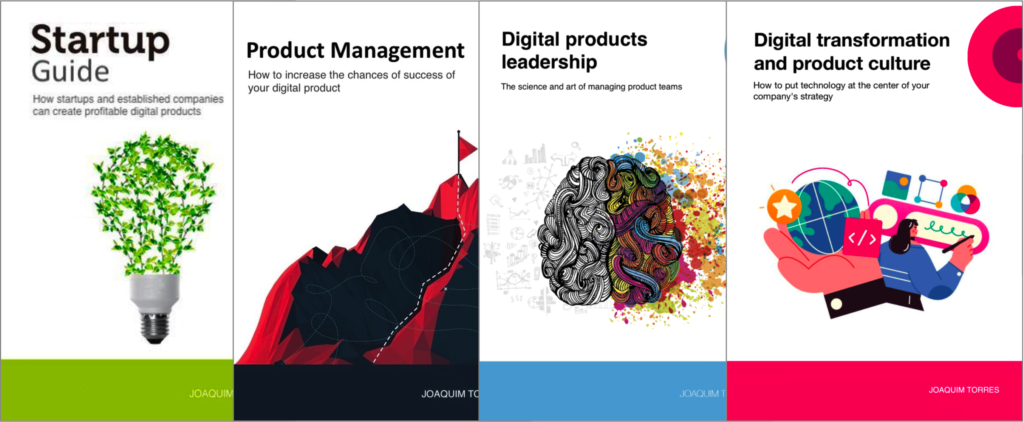Putting it all together: vision, strategy, roadmap, and OKRs
6 de August, 2019The need for domain experts
19 de August, 2019That is a question that I get a lot in my talks and my inbox so it seems to be a hot topic. Here’s my suggestion on how to make this career move.
First step: Study
Even though this is a relatively new career, you can already take some good courses to better understand the digital product management world. There are 2 mandatory courses for anyone willing to be a product manager:
- Certified Scrum Product Owner (CSPO): this course will give you the basics on how to work as the product person of a software development team that is using agile methodologies. There are many courses available all around the world. It is a 16-hour, in-person course that will help you understand how modern software development works and what’s the role and responsibilities of a product person in this process.
- Product Management Courses: these courses go deeper into the roles and responsibilities of a product manager and add to what a CSPO course provides you. In a PM course, you will learn techniques for building product vision and strategy, product development team structure, product-market fit, roadmaps and OKRs, problem discovery, analytics, product culture, and much more. Here in Brazil, there are two that I recommend. Tera’s Digital Product Leadership, a 50-hour, on-demand and synchronous course, and PM3, a 40-hour, on-demand course you can attend whenever and wherever is better for you – I teach a some classes in the PM3 Product Management, Product Marketing and Product Leadership courses. In the US and all around the world, the best option is SVPG’s public workshops normally taught by Marty Cagan, who was senior vice-president of product management and design for eBay, where he was responsible for defining products and services for the company’s global e-commerce trading site. I also provide in-company product management workshops that can be customized to fit your company’s needs.
Besides these 2 mandatory courses, there are other very helpful courses that I recommend:
- Lean Inception: an 8-hour, in-person course where you’ll learn how to align people and build the right product. Even though the public agenda only shows courses in Brazil, you can ask Paulo Caroli for in-company training anywhere in the world.
- SQL: data is a key tool to any product management role and knowing SQL will definitely help you master this tool enabling you to run your own analysis without depending on the data team to build you the reports you need. Probably an online course will do as an introduction to the topic. You can dive deeper later if needed.
- Finance: your product will help your company generate revenues and cut costs while generating costs from the product development process, so you should understand the financial dynamics of your company to better understand the impact of your work in your company. An online introductory course will do as a first step into this topic to understand terms like Gross Profit, EBITDA, assets, amortization, and others. You can dive deeper later as needed.
- Marketing: you will manage one of the 4 Ps of the famous “4Ps marketing mix“. However, it is very important that you know and understand the other 3Ps, promotion, price, and place. Again, an online introductory course will do as a first step into this topic. You can dive deeper later as needed.
Books are also a good source of knowledge, but if you have a chance to attend a course, I recommend doing so in addition to reading books. Some of the books I recommend on new product creation are:
- Getting Real: The Smarter, Faster and Easier Way to Build a Successful Web Application
- Running Lean: Iterate from Plan A to a Plan That Works
- The Entrepreneur’s Guide to Customer Development: A cheat sheet to The Four Steps to the Epiphany
- The Lean Startup: How Today’s Entrepreneurs Use Continuous Innovation to Create Radically Successful Businesses
- Lean Inception: How to Align People and Build the Right Product
- Startup Guide: How Startups and Established Companies Can Create Profitable Digital Products (currently available only in Portuguese, being translated into English).
And about product management are:
- Product Management: How to increase the chances of success of your digital product (Portuguese Edition)
- Leading Product Development: The art and science of leading digital products (Portugues Edition)
- Inspired: How to Create Tech Products Customers Love
- Empowered: Ordinary People, Extraordinary Products
- Agile Product Management with Scrum: Creating Products that Customers Love
- 42 Rules of Product Management: Learn the Rules of Product Management from Leading Experts around the World.
Next step: career change!
Ok, so now you studied the craft and are ready to make this career change, right? What’s the best way to do it?
The first piece of advice is that it is easier to make a career move in your current company. It’s quite difficult to change careers by moving to a different company, no matter what career you are in now and the one you are moving into. People will hire you for the experience that you have. If you have no experience as a product manager, it will be quite hard for someone to hire you as a product manager.
So, to make this career change, the best option is to do it in your existing company. Before any move, you should consider discussing this career move with your manager. She may be able to help you in this transition.
If your company already has a well-established product management function, they may accept apprentices, i.e., someone with good experience in other areas and who is willing to move into product management. At Gympass we call this position Associate Product Manager (APM). It is valuable to have someone with good experience in the business domain willing to make the move into product management.
However, if your company does not have a well-established product management function, there are two ways you can make this career change:
- The easiest way is to move to a company that has a well-established product management area, but you should make the move to this new company first into your existing area (marketing, customer support, legal, finance, etc.) and once inside that company, make the move into product management. It’s quite rare for companies to hire someone from another area directly into a beginner product management role. Normally, for these beginner positions, companies prefer to move someone internally from another area that already has a good knowledge of the business.
- The other way to make this career move is not that easy but can be a great career opportunity. You can build the product management function in your existing company and be the very first product manager. You just need to apply and practice the knowledge that you acquired during your product management studies in your day-to-day, whenever you see an opportunity. For instance, if your company decides to build a new app, you can volunteer to be the project coordinator for this new endeavor and then apply your product management knowledge to manage the app development. Or your company may decide to build a new site or a new system. Again you can volunteer to help manage this project and you can apply what you learned in this new project. After the project is successfully delivered, you can discuss with your leadership how you applied product management techniques in creating this product and maybe it is time to build a product management area in the company. In the case the leadership does not see the value of creating this area, at least now you have product management experience to include in your resume and to talk about when applying to product management opportunities.
Below I’ll cite some people who made the career change from some other areas to product management, so you can see their profiles or even connect with them to talk about their career changes. Some of them even wrote about their career change challenges and learnings:
- Rafael Rosa, Marcelo Doni, and Karoline Morone, from software engineering to product management
- Paula Sato and Fernanda Passos, from product design to product management
- André Pimentel, from customer support to product management
- Maíra Castro, from investment analyst to customer support and operations and then to product management
- Beatriz Costa and Cassio Scozzafave, from product marketing to product management
- Débora Appel, from finance to product management
- Paula Roschel, from legal to product management
- Vânia Amaral, from project management to product management
Workshops, coaching, and advisory services
I’ve been helping companies and their leaders (CPOs, heads of product, CTOs, CEOs, tech founders, and heads of digital transformation) bridge the gap between business and technology through workshops, coaching, and advisory services on product management and digital transformation.
Digital Product Management Books
Do you work with digital products? Do you want to know more about managing a digital product to increase its chances of success, solve its user’s problems, and achieve the company objectives? Check out my Digital Product Management books, where I share what I learned during my 30+ years of experience in creating and managing digital products:
- Digital transformation and product culture: How to put technology at the center of your company’s strategy
- Leading Product Development: The art and science of managing product teams
- Product Management: How to increase the chances of success of your digital product
- Startup Guide: How startups and established companies can create profitable digital products


